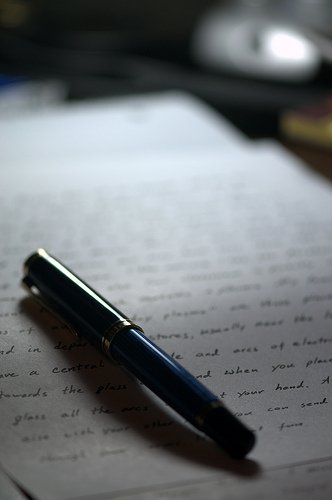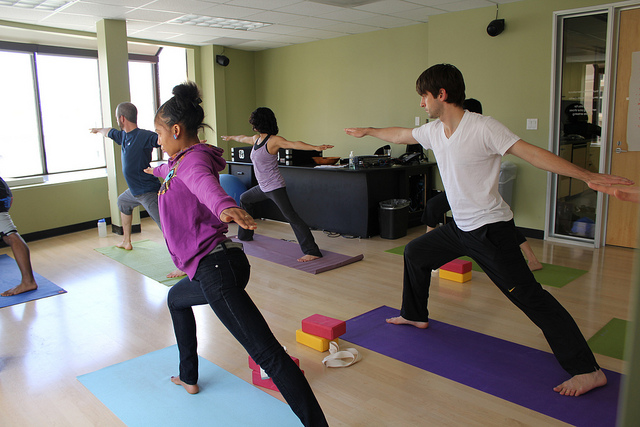
Source: Writing, J. Paxon Reyes, Flickr
“A relatively brief literary composition, usually in prose, giving the author’s views on a particular topic” is the way The Literacy Dictionary defines a literary essay. The most important phrase in this definition and the thing that makes an essay an essay is “the author’s views.”
If Roberto wants to write about self-confidence, he will be able to give his views on self-confidence by presenting ideas and supporting those ideas with examples from his own experiences. This essay will give Roberto’s views on the topic of self-confidence. He will not need to cite definitions from a psychology text about what self-confidence is or cite research about self-confidence.
If Angela wants to write about her experiences in a yoga class, however, she may want to include not just her idea and personal examples, but also some factual information she has learned from being part of the class. Maybe she would describe some poses like Child’s Pose, Downward Dog, Tailor’s Pose, or Happy Baby Pose.
She might want to explain how the poses are sequenced during a session and what the poses do for both physical and mental health. In other words, she might want to give her views on the topic by combining personal ideas and examples with factual information. She might want to interweave facts into the discussion of her yoga-class experience.

Source: Yoga Class At Youth Radio 11, Youth Radio, Flickr
Why would she want to include factual information? The essay is not a report about yoga poses; it is a discussion of her views on the topic of her yoga-class experience. She might want to include this information for many possible reasons, but the primary reason is that all of it is part of her experience.
While her explanation of the Downward Dog pose is not, in itself, one of “the author’s views on a particular topic,” the explanation is factual information that could be found online or in a reference book. Her experience of yoga, however, is inevitably related to what happens when she goes to class. The poses are a primary part of what happens, so in discussing her experience, she is going to explain them.
When you read essays, you will come across some that are almost entirely ideas and personal examples. These may contain hardly any factual information or possibly none at all. Many essays, however, will include factual information interwoven with the personal ideas and examples. In this lesson, you will learn how to identify and discuss the use of facts, personal examples, and ideas and how they are woven into a literary essay.